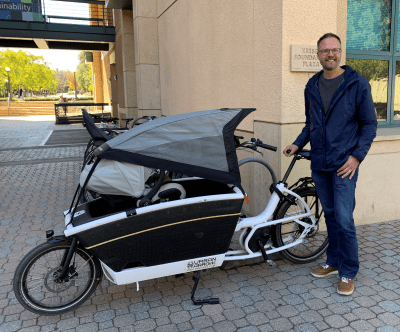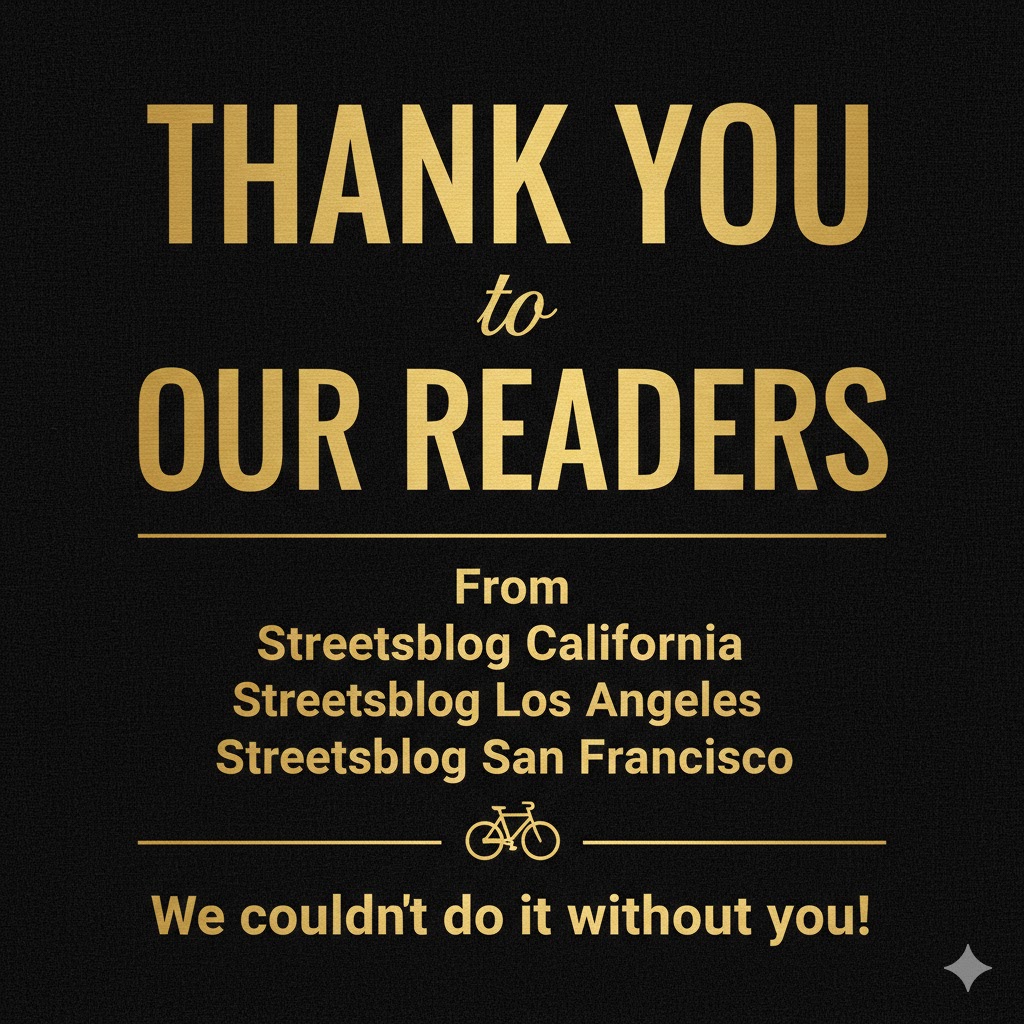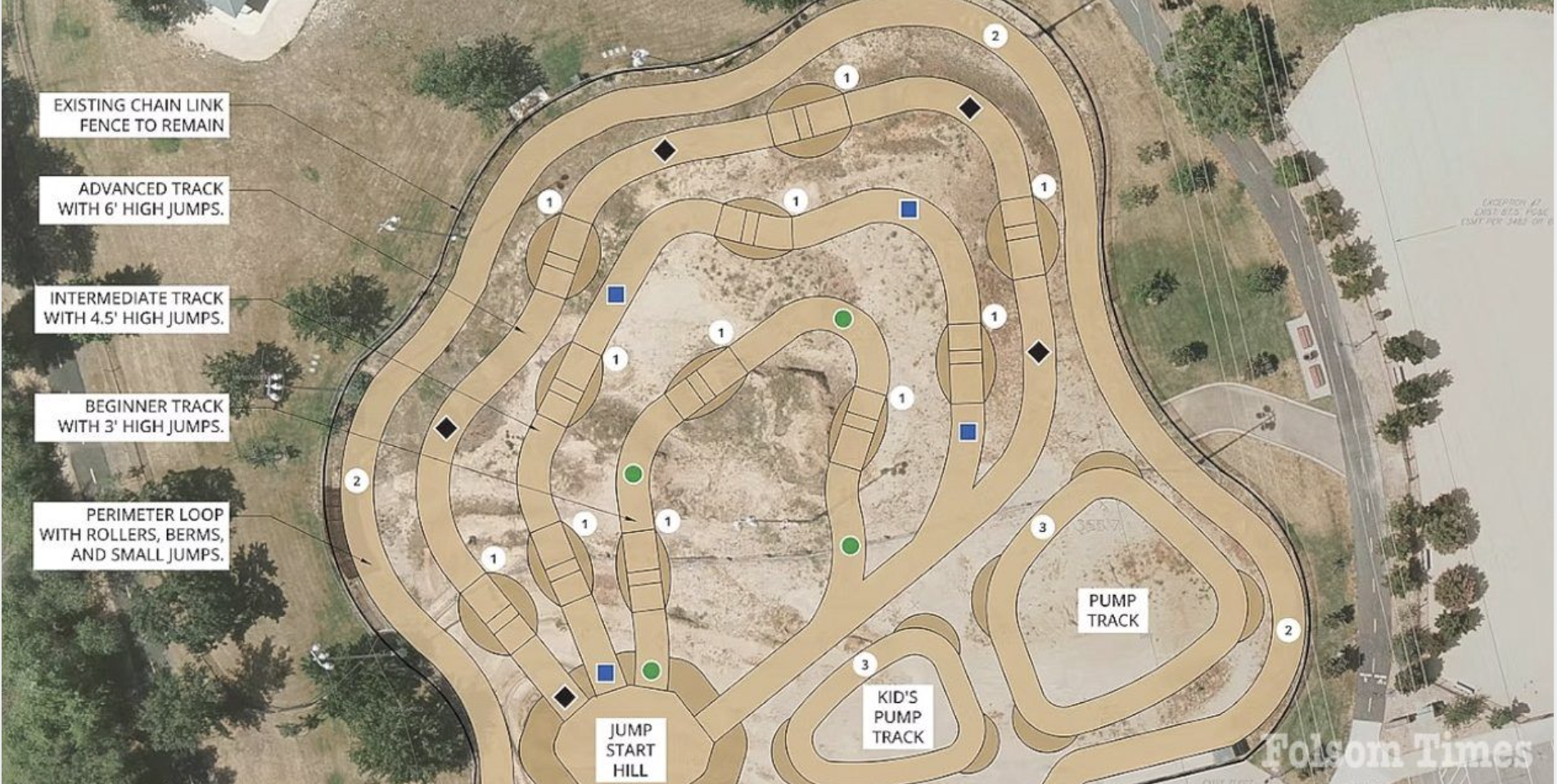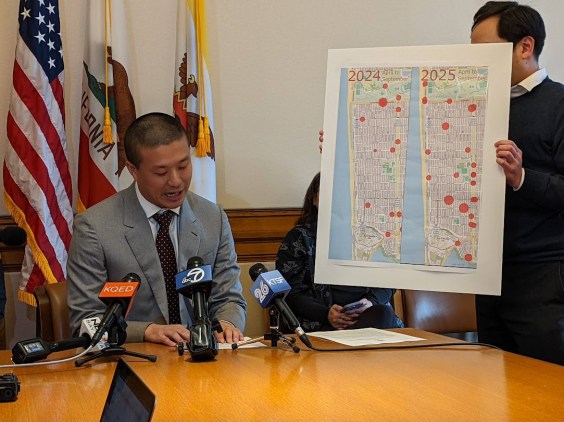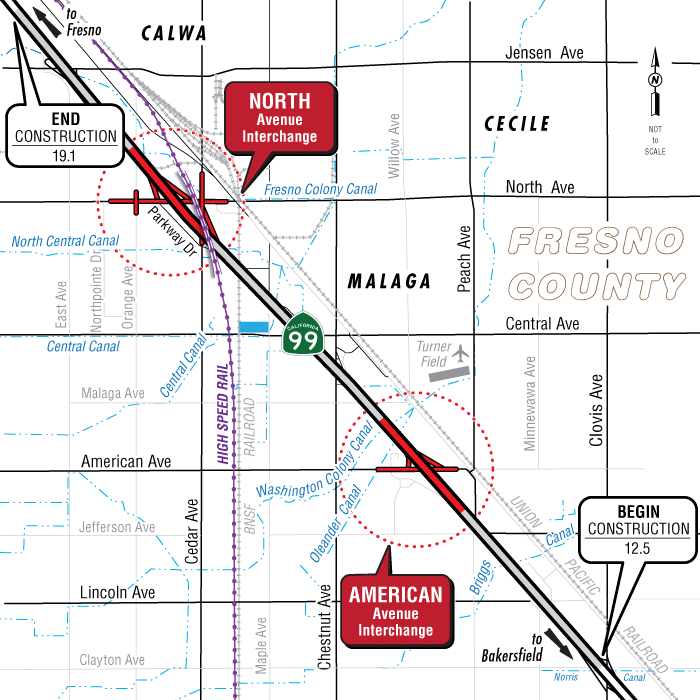Editor's note: too many times, we've read comments--sometimes even from supervisors and other lawmakers who should know better--that it's impossible to raise a family without a car. That is, of course, utter nonsense. If it is challenging, it's because cities have built streets that serve cars at the expense of all other forms of transportation. That's why when we saw this feature on Stanford University's website we thought it worth sharing with Streetsblog's readers, with permission.
At 4:30 p.m. on a crisp fall day, two bikers pedaled up to the Madera Grove Children’s Center on the Stanford campus. The rosy-cheeked duo was Arnout and Nicole Zoeller Boelens, who'd come to collect their two-year-old, Ava, from daycare. Arnout, a physical science research scientist at Stanford, was carrying some precious cargo – the couple’s son, Filip. Snuggled under a blue blanket, the four-month-old sat in his car seat secured inside the cargo bike box with an adapter.
Lest you think this was a one-off, it wasn’t. Car-free for 11 years, the Boelens roll exclusively on two wheels. They say they wouldn't trade their low-stress, adventurous biking lifestyle for anything.
The Flying Dutchman
For Arnout, who grew up in the Netherlands, cycling is in the blood. He met wife Nicole while living in Chicago. Going car-free in the Windy City was a breeze, especially for Nicole, who'd moved there from L.A. and was over being stuck in traffic. After they decided to move to the Bay Area for Arnout’s job in 2017 however, Nicole needed a bit of convincing.
Let’s Give It A Go
The couple purposely chose to live in midtown Palo Alto so both could be within riding distance to work. Aside from renting a car initially to purchase big ticket items for the move, they decided to "give it a go" and never looked back.
“We find it’s just as easy to get around within a five-mile radius by bike than it is by car. We get exercise, fresh air, and save so much money,” said Arnout. Statistics show 48% of car trips are shorter than three miles. Research from AAA states the average yearly cost to own and operate a new vehicle is $10,728, or $894 per month.
Everyday errands are a breeze: Arnout and Nicole ride everywhere including the grocery store and doctor appointments. For outings to San Francisco, the couple hops on Caltrain (using Stanford’s Go Pass, free to eligible affiliates). They take Uber to the airport, use the local host car-sharing app Turo, and rely on friends with cars for getaways to Yosemite and Carmel. On average, the Boelens rent a car three times a year. “Honestly, going carless here is so much easier than I anticipated,” Nicole said.
A Dutch-style cruiser bike convert, she appreciates the model’s low (or step-through-style) frame, allowing easy mounting and dismounting. The upright riding position is comfortable and allows Nicole to easily view and be seen in traffic – a big improvement over the hunched-over position of riding a road or hybrid bike. Another bonus: Parcels are toted in panniers as opposed to shoving everything into a heavy backpack. For longer excursions, Nicole opts for a Dutch electric bicycle.
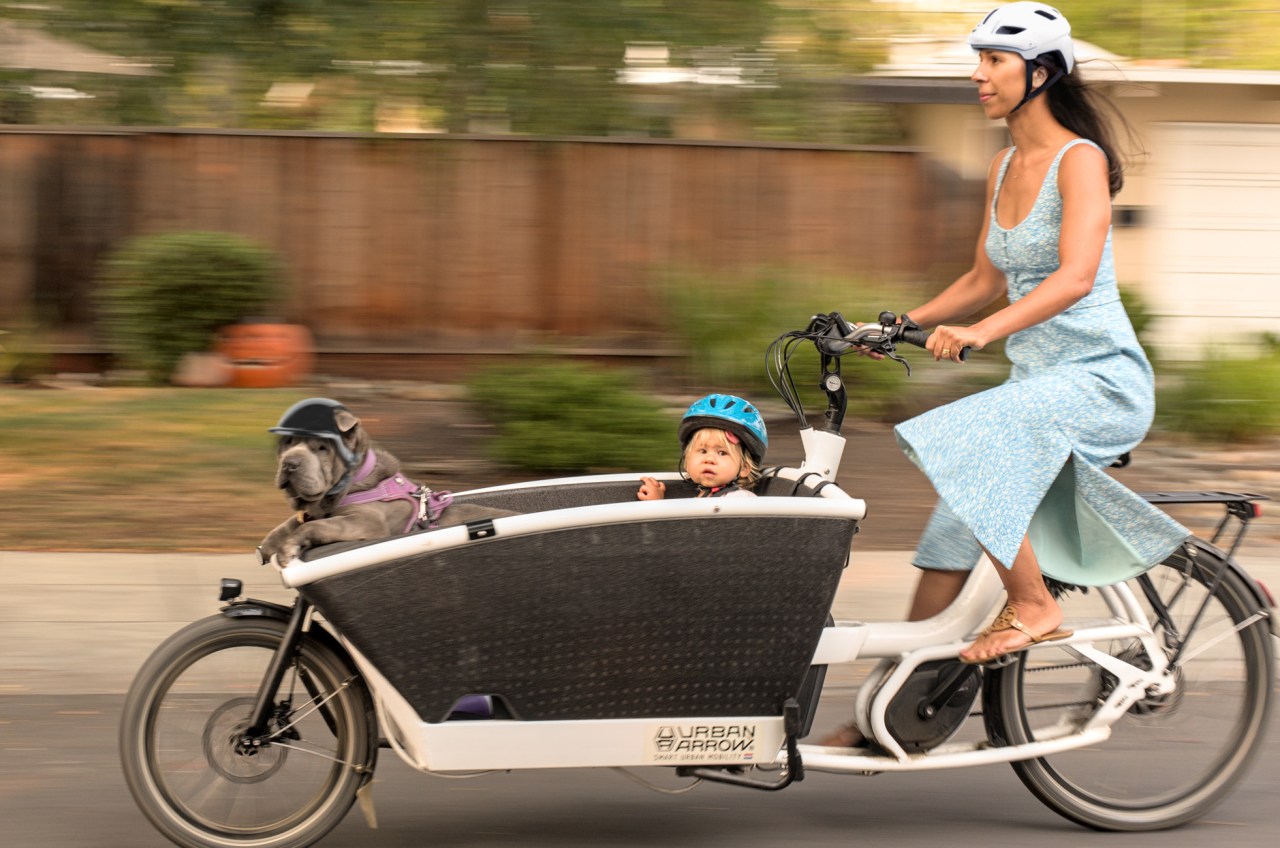
And Baby Makes Three
When daughter Ava was born, continuing the lifestyle was never in doubt. So, along with a crib and high chair, a cargo bike topped the parents-to-be list of must-haves.
Definition: A cargo bike is a human powered vehicle designed and constructed specifically for transporting loads. Borrowed from Dutch bakfiets, from bak (“container such as a box, crate, or tub”) + fiets (“bicycle”).
For Arnout, many perks resonate but perhaps none more than quality time with his kin. “It’s lovely to bike as a family. I can see the kids and talk to them. Filip smiles at me and I give him a little wave. Ava and I play games where we try to spot buses and trains. Riding is such a social activity and makes you feel connected as a family."
The Most Sustainable Mode, Too
From a sustainability perspective, replacing car miles with bike miles is one of the best ways to get to carbon neutral. Although his cargo bike is electric-assist, Arnout mostly uses pedal power when he rides.
There Will Be Snafus - Stranded in Larkspur
Sometimes when challenges arise, improvisation is key. Once, the family anticipated a nice weekend getaway in Larkspur. Weather reports predicted an atmospheric river but Arnout figured the forecast was most likely an exaggeration. Turns out the storm was as torrential as predicted. On the return trip home, the couple, with one-year-old Ava in tow, waited for public transit in the deluge. A commuter bus turned up arrived but bikes could be stored only underneath. The problem? Ava’s child seat was locked onto the back of Nicole’s bike with the key back home. Fortunately, Arnout kept his cool and realized he hadn’t actually locked the car seat. Voila! Off it came. The trio threesome hopped on the bus and headed home.
Off Into the Sunset They Rode
Back at Madera Grove, Ava emerged from the front door smiling and clutching Winnie the Pooh. She climbed into the box. Once she and Winnie were belted in onto a bench next to Filip, mom and dad hopped on their bikes and prepared for the twenty-minute ride home.
Whether you’re considering a car-free lifestyle or just exploring the bakfiets way, Arnout said, “The biggest thing I recommend is to give it a try.”
“It really is the happiest mode of transportation,” added Nicole.
With that, the Boelens pedaled off into the sunset.
Video by Justin Narayan
